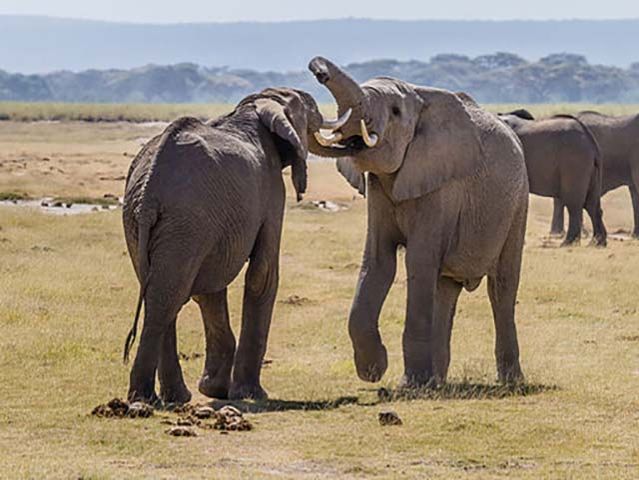Continuing reflections after Paris, Beirut and Iraq attacks
Date:17 December 2015Author:Joram Tarusarira
Today’s post continues our series of reflections on the attacks in Paris, Beirut and Iraq. Joram Tarusarira responds to Erin Wilson’s call to accept ambiguities, posing a few problems and questions with this approach
Whose religion? Whose Tolerance? A Response to Jonathan Israel
Date:15 December 2015Author:Erin Wilson
In yesterday’s post, Aukje Muller and Roos Feringa provided a summary of a public lecture delivered by Prof Jonathan Israel at the University of Groningen. CRCPD Director Erin Wilson was one of three scholars asked to give a response to Prof Israel’s talk. These remarks are published in today’s post.
Toleration in the Dutch Republic – A changing picture?
Date:14 December 2015Author:Aukje Muller, Roos Feringa
On Wednesday 4 November 2015, Jonathan Israel gave a University Colloquium lecture in Groningen, organised by Studium Generale. In his talk, Israel focused on the still very relevant notion of tolerance in the Dutch Republic, from the early Enlightenment period onwards. In today’s post, Aukje Muller and Roos Feringa summarise and review Prof Israel’s lecture.
Terrorism, climate change and the politics of ‘radicalization’
Date:11 December 2015Author:Religion Factor
Radicalization’ is becoming an increasingly common word in contemporary politics and public discourse. Yet it crops up in seemingly unrelated contexts, most recently in Paris, in relation to both terrorism and climate change. This raises a number of questions about what or who radicalization actually refers to. Erin Wilson reflects on these ambivalent dimensions of ‘radicalization’ in today’s post.
Towards a broader research agenda in religion and development
Date:10 December 2015Author:Religion Factor
In our previous post, Erin Wilson and Brenda Bartelink shared a summary and preliminary insights from a pilot study on spirituality and development transformation. In addition to the project specific findings, their research has also highlighted additional areas of focus for research on religion and development more broadly. In today’s post, they discuss these additional insights, developing suggestions for a broader research agenda on religion and development.
The spiritual is political: Blurring boundaries and challenging assumptions in religion and development
Date:09 December 2015Author:Religion Factor
Researchers at the CRCPD recently concluded a one-year NWO-funded pilot project exploring the entanglement of personal religious and spiritual transformation with broader processes of social transformation in developing contexts. The project was a collaboration with the Knowledge Centre Religion and Development and World Vision International and included field research amongst communities and World Vision staff in Zimbabwe, and a workshop with academics and practitioners in The Hague in June of this year. In this post, Erin Wilson and Brenda Bartelink provide a summary overview of the project and its preliminary findings.
Conflationary Consequences in Contemporary Atheisms
Date:26 November 2015
In today’s post, Terrell Carver reflects on our atheisms series, noting the ways in which conflation occurs across different concepts in public atheist discourses and the risks, challenges and strategies this raises for analysing as well as engaging with atheisms in contemporary global politics and public life.
Paris through the eyes of IS supporters
Date:24 November 2015
The attacks in Paris have led to huge debates about the perpetrators and their backgrounds, the strategies of the Islamic State, security policies in Europe, the role of Islam in the West, the possible risks of refugees and the most effective measures to “degrade and destroy” the Islamic State in Syria and Iraq. Less attention has been paid to how the supporters of the Islamic State have perceived the attacks
How global are atheisms?
Date:23 November 2015
In the past two weeks, The Religion Factor has published a series of posts on the topic of diversity within contemporary atheist movements, leading up to a seminar on ‘Atheisms around the globe’ organized by the CRCPD. In today’s post, Jeroen Weggen reflects back on the seminar and the series, offering some thoughts on which directions future research on atheisms might take.
Accepting Ambiguity: Being Content with Uncertainties amidst the Urge for Security
Date:17 November 2015
Since the events in Iraq, Beirut and Paris last week, we have all been trying to make sense of what has happened and how to respond. Over the coming weeks, The Religion Factor will be publishing reflections from staff and fellows of the Centre for Religion, Conflict and the Public Domain on these events from a number of different perspectives. Today’s post, from CRCPD Director Erin Wilson, suggests that becoming more comfortable with ambiguity may be the most difficult response, but is perhaps one of the few ways to deal with the inconsistencies and uncertainties that such events inevitably raise.







